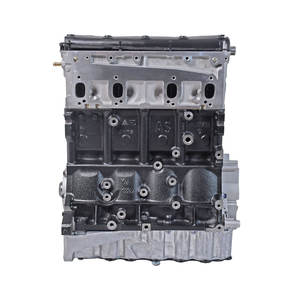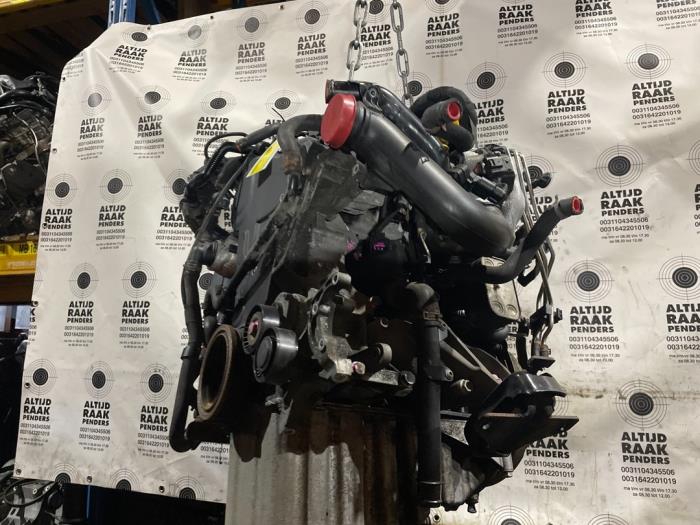Browsing the Refine of Engine Choice: Secret Factors to Take Into Consideration
The process of engine choice is a diverse venture that demands careful analysis of numerous vital aspects to ensure alignment with functional objectives. Performance demands, gas performance, and budgetary restraints are just the beginning; factors to consider around ecological effect and maintenance assistance play a crucial duty in the decision-making framework.
Performance Requirements
When choosing an engine, it is important to establish clear efficiency requirements that align with the designated application. Performance needs include a range of elements, consisting of power output, torque features, and responsiveness, which must be tailored to the details demands of the car or equipment in concern.
Power output, typically measured in horsepower, determines the engine's capability to thrust a car or execute a task efficiently. Torque, on the various other hand, is crucial for applications calling for solid initial velocity or hefty training abilities. An understanding of the operational atmosphere is likewise important; for instance, engines designed for off-road applications might need various efficiency qualities compared to those intended for freeway usage.
Furthermore, consider the operational tons and duty cycle, as these variables affect the engine's longevity and integrity. In high-load situations, a durable engine layout might be required to avoid premature wear or failure. Furthermore, efficiency demands must likewise incorporate factors to consider for discharge requirements and regulative conformity, specifically in areas with strict ecological guidelines. By specifying these efficiency specifications early in the selection procedure, stakeholders can make educated choices that boost general operational performance and performance.
Gas Efficiency Considerations
While efficiency requirements are vital, fuel performance is equally essential in the engine option procedure, as it directly affects operating expense and environmental sustainability. Fuel-efficient engines consume much less fuel each of job performed, which not only decreases general expenditure yet likewise minimizes greenhouse gas exhausts. As organizations progressively focus on sustainability, selecting an engine that maximizes gas performance can boost corporate responsibility and conformity with ecological guidelines.
When evaluating fuel performance, it is necessary to consider the engine's design and innovation - amarok engine for sale. Developments such as turbocharging, direct fuel injection, and crossbreed systems can significantly enhance fuel economic situation. Additionally, comprehending the operating conditions and duty cycles of the engine application is important; engines may execute in different ways under varying loads and speeds
In addition, suppliers often supply gas consumption data that can be used to contrast different engine options. It is recommended to evaluate these specifications in real-world situations to make certain precision. The kind of gas utilized can also influence fuel efficiency; alternative gas might offer much better performance and reduced exhausts. In recap, fuel effectiveness is a multi-faceted consideration that requires complete assessment during the engine option procedure.
Budget and Cost Analysis
Spending plan and cost analysis acts as a vital part in the engine option procedure, affecting both temporary financial investments and long-term functional expenditures. When reviewing prospective engines, it is vital to consider not only the first purchase cost however additionally the overall price of ownership, which incorporates setup, maintenance, fuel consumption, and prospective downtime.
A detailed evaluation needs to begin with the in advance costs related to the engine, consisting of required alterations or supplementary tools. However, concentrating exclusively on preliminary expenditures may cause misdirected choices. Assessing operating expenses over the engine's life expectancy is equally crucial, as a lot more expensive engines might use exceptional gas efficiency or decreased upkeep needs, ultimately bring about set you back savings.

Environmental Effect Aspects
Recognizing environmental impact elements is important in the engine choice procedure, as sustainability considerations have become progressively crucial for both governing compliance and corporate responsibility. Organizations has to evaluate the emissions generated by different engine types, consisting of carbon dioxide, nitrogen oxides, particulate issue, and unburned hydrocarbons. These exhausts contribute considerably to air contamination read the full info here and climate adjustment, demanding a careful analysis of the engine's ecological impact.
Moreover, fuel kind plays an essential role in ecological impact. Engines powered by renewable resource sources, such as biofuels or hydrogen, have a tendency to have a reduced environmental influence contrasted to typical nonrenewable fuel sources. Additionally, the lifecycle evaluation of the engine, from production through operation to disposal, need to be thought about to recognize the full extent of its environmental effects.

Upkeep and Support Options
When selecting an engine, the schedule of maintenance and assistance alternatives is an important consideration that can substantially affect operational effectiveness and durability. Comprehensive upkeep prepares ensure that the engine runs at peak performance and decreases unexpected downtimes. It is vital to assess the supplier's support network, including the accessibility of qualified specialists and solution centers.
Analyzing the access of extra parts is also crucial. A trusted supply chain for parts can decrease lead times for repairs and upkeep, consequently boosting overall performance. Additionally, take into consideration the ease of obtaining technological documentation and training resources, which are crucial for making sure that workers are fully equipped to handle regular and emergency situation circumstances.
An additional important aspect is the guarantee and service Read More Here contracts supplied by the producer. These contracts can provide assurance and financial security against unanticipated concerns. Ultimately, an aggressive strategy to maintenance and support not only extends the life of the engine but additionally adds to the general success of the procedure. Cautious factor to consider of these elements will cause educated choices that straighten with operational goals and budget plans.
Verdict
To conclude, the procedure of engine choice requires a comprehensive evaluation of numerous vital elements, including performance demands, fuel effectiveness, budget plan restrictions, environmental influence, and upkeep support. By carefully evaluating these aspects, notified decisions can be made that straighten with operational purposes and sustainability goals. Eventually, a calculated technique to engine selection will certainly make certain optimum performance and longevity while addressing financial and environmental considerations efficiently.
While efficiency demands are essential, fuel effectiveness is equally important in the engine choice process, as it straight impacts operating expenses and ecological sustainability. As companies significantly focus on sustainability, selecting an engine that optimizes fuel efficiency can boost corporate responsibility and compliance with ecological guidelines.
Furthermore, recognizing the operating conditions and task cycles of the engine application is crucial; engines may carry out differently under differing speeds and tons. (amarok engine for sale)
Reviewing operating additional info costs over the engine's life expectancy is just as vital, as a lot more expensive engines might provide remarkable fuel performance or lowered maintenance requirements, eventually leading to set you back savings.
In conclusion, the process of engine option necessitates an extensive analysis of various crucial aspects, consisting of efficiency requirements, fuel effectiveness, budget plan restraints, environmental effect, and upkeep support. - amarok engine for sale
Comments on “Your Ultimate Source for Amarok Engine for Sale-- Dependable Engines for Every Need”